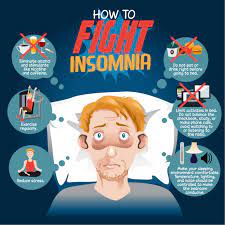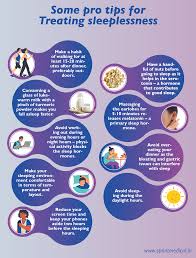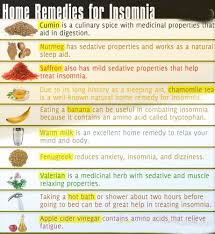Insomnia: Understanding and Overcoming Sleeplessness
Insomnia is a common sleep disorder that affects millions of people worldwide. It is characterized by difficulty falling or staying asleep, waking up too early, and feeling tired or irritable during the day. Insomnia can be acute (short-term) or chronic (long-term), and it can have a significant impact on our physical, mental, and emotional health.
Causes of Insomnia
Insomnia can be caused by a variety of factors, including stress, anxiety, depression, chronic pain, medication side effects, caffeine or alcohol consumption, and poor sleep habits. Certain medical conditions such as sleep apnea and restless leg syndrome can also contribute to insomnia.
Symptoms of Insomnia
The symptoms of insomnia can vary from person to person but typically include difficulty falling asleep, waking up frequently during the night, waking up too early in the morning, feeling tired or irritable during the day, having trouble concentrating or remembering things.
Effects of Insomnia
Insomnia can have a significant impact on our physical health. Lack of sleep can weaken our immune system and increase the risk of developing chronic conditions such as diabetes and heart disease. Insomnia can also affect our mental health by increasing feelings of anxiety and depression.
Tips for Overcoming Insomnia
If you are struggling with insomnia, there are several things you can do to improve your sleep habits:
- Establish a regular sleep routine: Go to bed at the same time every night and wake up at the same time every morning.
- Create a relaxing bedtime routine: Take a warm bath or shower before bed, read a book or listen to calming music to help you unwind.
- Avoid caffeine and alcohol: Both caffeine and alcohol can disrupt your sleep cycle.
- Exercise regularly: Regular exercise has been shown to improve sleep quality.
- Practice relaxation techniques: Techniques such as deep breathing exercises, meditation or yoga can help you relax and fall asleep more easily.
- Seek professional help: If your insomnia is chronic or is affecting your daily life, talk to your doctor or a sleep specialist for further evaluation and treatment.
In conclusion, insomnia can be a challenging condition to deal with, but there are several things you can do to improve your sleep habits and overcome sleeplessness. By establishing a regular sleep routine, creating a relaxing bedtime routine, avoiding caffeine and alcohol, exercising regularly, practicing relaxation techniques, and seeking professional help if necessary, you can improve the quality of your sleep and enjoy the many benefits of a good night’s rest.
7 Surprising Benefits of Insomnia: How Sleeplessness Can Boost Your Daytime Performance
- Improved alertness and concentration during the day
- Increased creativity
- Better problem-solving skills
- Improved decision-making abilities
- Enhanced memory recall
- Increased motivation to complete tasks
- More energy throughout the day
7 Negative Effects of Insomnia on Health and Well-being
- Difficulty concentrating
- Increased risk of depression and anxiety
- Fatigue and decreased energy
- Irritability and mood swings
- Impairment of the immune system
- Increased risk of heart disease, high blood pressure, and stroke
- Poor performance at work or school
Improved alertness and concentration during the day
While insomnia is often associated with negative consequences such as fatigue and irritability, there is one potential benefit to sleeplessness: improved alertness and concentration during the day.
When we experience insomnia, we may compensate for our lack of sleep by consuming caffeine or engaging in other stimulating activities. This can lead to increased wakefulness and mental clarity during the day. Additionally, the struggle to stay awake and focused can actually strengthen our ability to concentrate.
However, it’s important to note that this pro of insomnia is short-lived and comes at a cost. Chronic sleep deprivation can have a detrimental effect on our overall health and well-being, including increased risk of developing chronic conditions such as diabetes and heart disease.
Therefore, while improved alertness and concentration may seem like a silver lining in the moment, it’s important to prioritize healthy sleep habits in order to maintain optimal physical, mental, and emotional health in the long run.
Increased creativity
While insomnia is often seen as a negative condition that can have adverse effects on our health, it can also have some surprising benefits. One such benefit is increased creativity.
Research has shown that people who suffer from insomnia may have a more active and creative mind. When we are unable to sleep, our brains continue to work and process information, leading to new ideas and insights. In fact, some of the most famous artists, writers, and musicians in history were known to suffer from insomnia, including Vincent van Gogh, Edgar Allan Poe, and Wolfgang Amadeus Mozart.
While it’s important to note that chronic insomnia can have serious health consequences, occasional sleepless nights may actually be beneficial for those in creative fields. The extra time awake can provide an opportunity for brainstorming and problem-solving that may not be possible during the day when distractions are more prevalent.
Of course, this doesn’t mean that you should intentionally deprive yourself of sleep in the hopes of boosting your creativity. Adequate sleep is essential for overall health and well-being. However, if you find yourself struggling with occasional bouts of insomnia, try embracing the extra time awake as an opportunity for creative exploration.
In conclusion, while insomnia is generally considered a negative condition with harmful effects on our health and well-being, it can also have some surprising benefits such as increased creativity. If you’re struggling with occasional bouts of sleeplessness, try embracing the extra time awake as an opportunity for creative exploration while still prioritizing adequate rest for your overall health.
Better problem-solving skills
While insomnia is generally considered a negative condition, there is one potential benefit that some people may experience: improved problem-solving skills. When we are sleep-deprived, our brain may be more alert and focused, which can lead to better cognitive performance in certain areas.
Studies have shown that sleep-deprived individuals may have enhanced creativity and problem-solving abilities. This is because the brain is forced to work harder to compensate for the lack of rest, leading to increased activity in certain areas of the brain. In fact, some of history’s most famous inventors, like Thomas Edison and Leonardo da Vinci, were known for their irregular sleep patterns and ability to work through the night.
However, it’s important to note that this potential benefit of insomnia does not outweigh the negative effects of chronic sleep deprivation on our physical and mental health. While occasional sleepless nights may lead to a temporary spike in cognitive performance, chronic insomnia can lead to serious health problems such as depression, anxiety, and an increased risk of heart disease.
Therefore, it’s crucial to prioritize good sleep habits and seek help if you are experiencing chronic insomnia. While occasional sleepless nights may not be harmful and could even lead to improved problem-solving skills in some individuals, long-term sleep deprivation can have serious consequences for our overall well-being.
Improved decision-making abilities
While insomnia is often seen as a negative condition that can lead to a range of health problems, there is one potential benefit to sleeplessness: improved decision-making abilities. Studies have shown that when people are sleep-deprived, they are better able to make decisions that require complex analysis and evaluation.
This may seem counterintuitive, as lack of sleep is often associated with impaired cognitive function. However, some researchers believe that when we are sleep-deprived, our brains are forced to work harder to compensate for the lack of rest. This increased effort may actually improve our ability to process information and make decisions.
Of course, it’s important to note that the benefits of improved decision-making must be weighed against the negative effects of chronic insomnia on overall health and well-being. Sleep deprivation can lead to a range of physical and mental health problems, including weakened immune function, increased risk of depression and anxiety, and impaired memory and concentration.
Therefore, while it’s interesting to consider the potential benefits of insomnia on decision-making abilities, it’s important for individuals who struggle with sleeplessness to prioritize getting adequate rest in order to maintain overall health and cognitive function.
Enhanced memory recall
While insomnia is generally considered a sleep disorder that has negative effects on our health, there is at least one potential benefit to this condition. Insomnia may actually enhance memory recall.
Research has shown that people with insomnia have better memory recall than those who get a full night’s sleep. This is because when we sleep, our brains go through different stages of sleep, including deep sleep and rapid eye movement (REM) sleep. During these stages, our brains consolidate memories and store them in long-term memory.
However, people with insomnia tend to spend more time in lighter stages of sleep, which are associated with enhanced memory consolidation. This means that even though they may not be getting as much deep or REM sleep as they need, their brains are still able to process and store memories effectively.
While this may seem like a small consolation for those struggling with insomnia, it does highlight the complexity of the relationship between sleep and memory. It also underscores the importance of further research into the effects of insomnia on cognitive function and overall health.
It’s important to note that while enhanced memory recall may be a pro of insomnia, it doesn’t outweigh the many negative effects this condition can have on our physical, mental, and emotional health. If you are struggling with insomnia, it’s important to seek help from a healthcare professional who can provide guidance and support in managing this condition.
Increased motivation to complete tasks
While insomnia is generally seen as a negative condition, there are some potential benefits to experiencing sleeplessness. One of these benefits is an increased motivation to complete tasks.
When we are sleep deprived, our brain releases more of the stress hormone cortisol. This can actually increase our alertness and motivation to get things done. Additionally, when we are awake for longer periods of time, we may feel a sense of urgency to complete tasks before the day ends.
Of course, it’s important to note that chronic insomnia can have negative effects on our physical and mental health. However, experiencing occasional bouts of sleeplessness may actually boost productivity in the short term.
It’s important to find a balance between getting enough rest and being motivated to accomplish tasks. If you find yourself struggling with chronic insomnia or feeling overwhelmed by your workload, it may be helpful to talk to a healthcare professional or therapist for additional support and guidance.
More energy throughout the day
While insomnia is generally considered a sleep disorder with negative consequences, there is one potential benefit that some people may experience: more energy throughout the day. Insomnia can cause individuals to get less sleep than they need, which can result in feeling more alert and awake during the day. This increased energy may be due to the body’s natural response to sleep deprivation, which releases stress hormones that can provide a temporary boost of energy.
However, it’s important to note that this benefit is short-lived and comes at a cost. Chronic insomnia can have serious negative effects on physical and mental health, including increased risk of chronic diseases such as diabetes and heart disease, as well as depression and anxiety. Additionally, the temporary increase in energy from insomnia is often followed by a crash later in the day, leading to feelings of fatigue and decreased productivity.
If you are experiencing insomnia and find yourself feeling more energized during the day, it’s important to address the root cause of your sleeplessness rather than relying on its short-term benefits. Practicing good sleep hygiene habits such as establishing a regular bedtime routine, avoiding caffeine before bed, and limiting screen time before sleeping can all help improve your quality of sleep. Additionally, seeking professional help from a doctor or therapist may be necessary for those with chronic insomnia.
In conclusion, while more energy throughout the day may seem like a positive side effect of insomnia, it’s important to recognize that this benefit is temporary and comes at a cost. Addressing the underlying causes of insomnia through good sleep hygiene habits and seeking professional help when necessary is crucial for maintaining overall health and well-being.
Difficulty concentrating
Difficulty Concentrating: A Common Consequence of Insomnia
Insomnia, a sleep disorder characterized by difficulty falling or staying asleep, can have several negative consequences on our physical and mental health. One of the most common consequences of insomnia is difficulty concentrating during the day.
When we don’t get enough sleep, our brain’s ability to concentrate and focus on tasks is reduced. This can make it challenging to complete work or school assignments, participate in conversations, or even perform simple daily tasks such as driving or cooking. Lack of concentration can also affect our memory and ability to learn new things.
The effects of insomnia on concentration can be especially challenging for those who have demanding jobs that require a high level of focus and attention to detail. It can also be difficult for students who need to study for exams or complete homework assignments.
Fortunately, there are several things you can do to improve your concentration if you are struggling with insomnia:
- Get more sleep: The most effective way to improve your concentration is by getting more sleep. Establish a regular sleep routine and create a relaxing bedtime routine to help you fall asleep more easily.
- Avoid distractions: When you need to concentrate on a task, eliminate any distractions such as noise, social media notifications or emails.
- Take breaks: Taking short breaks throughout the day can help refresh your mind and improve your ability to concentrate.
- Exercise regularly: Regular exercise has been shown to improve cognitive function and concentration.
- Eat a healthy diet: A diet rich in fruits, vegetables, whole grains and lean protein can help improve brain function and concentration.
In conclusion, difficulty concentrating is a common consequence of insomnia that can have significant impacts on our daily lives. By improving our sleep habits through regular routines and relaxation techniques, avoiding distractions when we need to focus, taking regular breaks throughout the day, exercising regularly and eating a healthy diet, we can improve our concentration and enjoy the many benefits of a well-rested mind.
Increased risk of depression and anxiety
Insomnia is a sleep disorder that affects millions of people worldwide. One of the most significant cons of insomnia is that it can increase the risk of depression and anxiety. Lack of sleep can have a profound impact on our mental health, leading to feelings of sadness, hopelessness, and anxiety.
Studies have shown that people with insomnia are more likely to develop depression and anxiety than those who get enough sleep. The relationship between insomnia and mental health is complex, as both conditions can exacerbate each other. For example, people with depression may find it harder to fall asleep or stay asleep, while those with insomnia may experience increased feelings of sadness or anxiety due to lack of sleep.
Insomnia can also affect our ability to cope with stress, which can further contribute to feelings of anxiety and depression. When we are sleep-deprived, our bodies produce more stress hormones such as cortisol, which can make us feel more anxious and irritable.
Fortunately, there are several things we can do to improve our sleep habits and reduce the risk of developing depression and anxiety. Establishing a regular sleep routine, creating a relaxing bedtime routine, avoiding caffeine and alcohol before bed, exercising regularly, practicing relaxation techniques such as meditation or deep breathing exercises are some effective ways to improve the quality of our sleep.
If you are struggling with insomnia or experiencing symptoms of depression or anxiety, it’s essential to seek professional help from your doctor or a mental health specialist. With proper treatment and support, you can overcome the challenges associated with insomnia and improve your overall mental health and well-being.
Fatigue and decreased energy
One of the most significant cons of insomnia is fatigue and decreased energy. When we don’t get enough sleep, our bodies don’t have the opportunity to recharge and recover fully. This can lead to feelings of exhaustion, lethargy, and a general lack of energy throughout the day.
Fatigue can affect our ability to concentrate, think clearly, and make decisions. It can also impact our productivity at work or school, as well as our ability to enjoy leisure activities or spend time with loved ones.
Furthermore, fatigue can have physical consequences as well. It can weaken our immune system and make us more susceptible to illness. It can also increase the risk of accidents or injuries due to impaired cognitive function and slower reaction times.
In conclusion, fatigue and decreased energy are significant cons of insomnia that can impact all aspects of our lives. By prioritizing good sleep habits and seeking professional help if necessary, we can improve the quality of our sleep and avoid the negative consequences associated with insomnia.
Irritability and mood swings
Irritability and Mood Swings: The Negative Impact of Insomnia
Insomnia, the inability to sleep or stay asleep, can have a significant impact on our mood and emotional well-being. One of the most common negative effects of insomnia is irritability and mood swings.
When we don’t get enough sleep, our bodies and minds become fatigued, making it difficult to regulate our emotions. We may feel more irritable, anxious, or depressed than usual. This can lead to mood swings, where we experience sudden changes in our emotional state.
Irritability and mood swings can affect our relationships with others as well. We may snap at our loved ones or colleagues for no apparent reason, causing tension and conflict in our personal and professional lives.
The negative impact of irritability and mood swings caused by insomnia can be significant. It can affect our job performance, social life, and overall quality of life. It can also exacerbate existing mental health conditions such as anxiety or depression.
To prevent irritability and mood swings caused by insomnia, it’s essential to establish healthy sleep habits. This includes creating a relaxing bedtime routine, avoiding caffeine and alcohol before bed, exercising regularly, practicing relaxation techniques such as deep breathing exercises or meditation, and seeking professional help if necessary.
In conclusion, irritability and mood swings are common negative effects of insomnia that can have a significant impact on our emotional well-being. By establishing healthy sleep habits and seeking professional help if necessary, we can prevent these negative effects and enjoy the many benefits of a good night’s rest.
Impairment of the immune system
Insomnia is a sleep disorder that can have various negative effects on our physical and mental health. One of the cons of insomnia is the impairment of the immune system, which is responsible for protecting our body against infections and diseases.
When we don’t get enough sleep, our immune system becomes weakened, making us more susceptible to illnesses such as colds, flu, and other infections. This happens because sleep helps to regulate the production of cytokines, which are proteins that play a crucial role in fighting off infections and inflammation.
Furthermore, lack of sleep can also affect the production of antibodies, which are proteins that help to identify and neutralize harmful pathogens in our body. Without sufficient antibodies, our body may not be able to effectively fight off infections or diseases.
In addition to weakening our immune system, insomnia can also increase inflammation in the body. Chronic inflammation has been linked to several health conditions such as heart disease, diabetes, and cancer.
Therefore, it is essential to prioritize getting enough quality sleep each night to maintain a healthy immune system. By establishing good sleep habits such as maintaining a regular sleep schedule, avoiding caffeine and alcohol before bedtime and creating a relaxing bedtime routine can help improve the quality of your sleep. If you are experiencing chronic insomnia or feel that your lack of sleep is affecting your daily life or health negatively, it’s advisable to speak with your doctor or healthcare provider for further evaluation and treatment options.
Increased risk of heart disease, high blood pressure, and stroke
Insomnia, a sleep disorder that affects millions of people worldwide, can have serious consequences for our physical health. One significant con of insomnia is that it increases the risk of heart disease, high blood pressure, and stroke.
Lack of sleep can lead to an increase in blood pressure and heart rate, putting extra strain on the cardiovascular system. Over time, this increased strain can lead to more significant problems such as atherosclerosis (hardening of the arteries), which can increase the risk of heart attack and stroke.
Research has shown that people who suffer from chronic insomnia are at a higher risk of developing hypertension (high blood pressure) than those who get enough sleep regularly. In addition to hypertension, insomnia has also been linked to other cardiovascular problems such as arrhythmias (irregular heartbeat) and heart failure.
Furthermore, insomnia can contribute to the development of metabolic disorders such as obesity and diabetes. These conditions are also associated with an increased risk of heart disease and stroke.
In conclusion, insomnia is not just a minor inconvenience; it can have serious implications for our physical health. By prioritizing good sleep habits and seeking professional help if necessary, we can reduce our risk of developing cardiovascular problems associated with insomnia. It’s essential to remember that quality sleep is essential for maintaining good overall health and well-being.
Poor performance at work or school
Insomnia is a sleep disorder that can have a significant impact on our daily lives, including our performance at work or school. Poor sleep can lead to a lack of focus, decreased productivity, and difficulty retaining information.
When we don’t get enough sleep, our brain doesn’t have the opportunity to rest and recover fully. This can lead to difficulty concentrating and making decisions, which can affect our performance at work or school. We may also experience memory problems, making it hard to recall important information.
Additionally, insomnia can cause daytime fatigue and irritability, which can make it challenging to stay engaged and motivated throughout the day. We may find ourselves struggling to stay awake during meetings or lectures, or feeling too tired to complete tasks efficiently.
Overall, poor performance at work or school is one of the many negative consequences of insomnia. To combat this con of insomnia, it’s essential to prioritize good sleep habits and seek professional help if necessary. By improving our sleep quality and ensuring we get enough rest each night, we can improve our focus, productivity, and overall performance in all areas of life.




